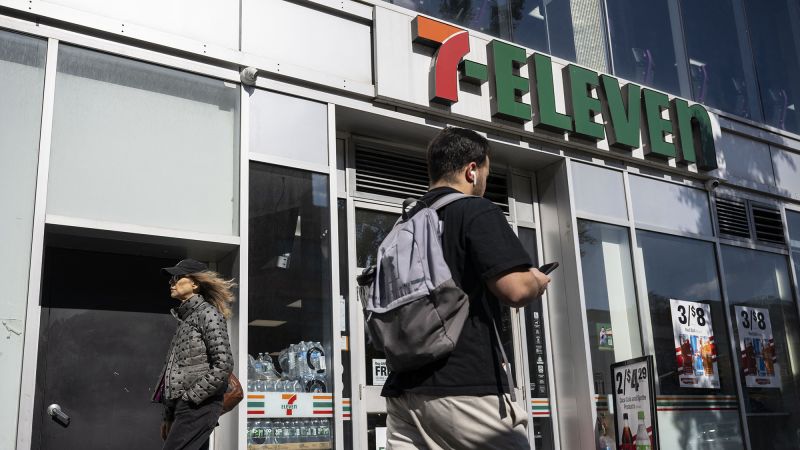7-Eleven, a popular convenience store chain with over 13,000 locations across North America, has announced the closure of 444 underperforming stores due to several issues, including slowing sales, declining traffic, inflationary pressures, and a decrease in cigarette purchases. While a specific list of closing locations has not been released, the closures amount to 3% of the chain’s portfolio. Seven & I Holdings, the chain’s Japan-based parent company, revealed this decision in an earnings report, citing challenges in the North American economy such as persistent inflation, high interest rates, and a deteriorating employment environment.
The chain reported a 7.3% decline in traffic in August, following six months of continuous declines. Cigarette purchases, once the largest sales category for convenience stores, have fallen by 26% since 2019. Despite a shift towards other nicotine products like Zyn, the decrease in cigarette sales has not been fully offset. Neil Saunders, a retail industry analyst and managing director with GlobalData Retail, described the closures as a “gentle pruning of the chain” to maintain efficiency and profitability. Saunders attributes the decline in foot traffic and customers to rising food prices and increased competition from online and value stores offering lower prices.
Recognizing the need to remain competitive, 7-Eleven plans to focus on investing in food offerings, which is currently the highest sales category and a top draw for customers. The chain’s overall customer satisfaction scores have trailed behind competitors such as Wawa and Sheetz in a recent survey. These efforts are part of a larger strategy to stay relevant in a rapidly changing retail landscape. Additionally, 7-Eleven’s latest financial results coincide with a takeover offer from Circle-K owner Couche-Tard, which recently increased its bid to $47.2 billion. This offer underscores the competitive nature of the convenience store industry and the value placed on established brands like 7-Eleven.
As consumers continue to adjust their spending habits in response to economic challenges, convenience store chains like 7-Eleven are faced with the need to adapt and evolve to meet changing demand. By identifying underperforming locations and making strategic decisions to close them, the chain aims to streamline operations and improve overall profitability. Despite the closures, 7-Eleven remains committed to its core offering of convenient food options and plans to enhance its food category to better meet customer expectations. These actions reflect the chain’s efforts to stay ahead in a competitive market while responding to shifting consumer preferences and industry trends.


